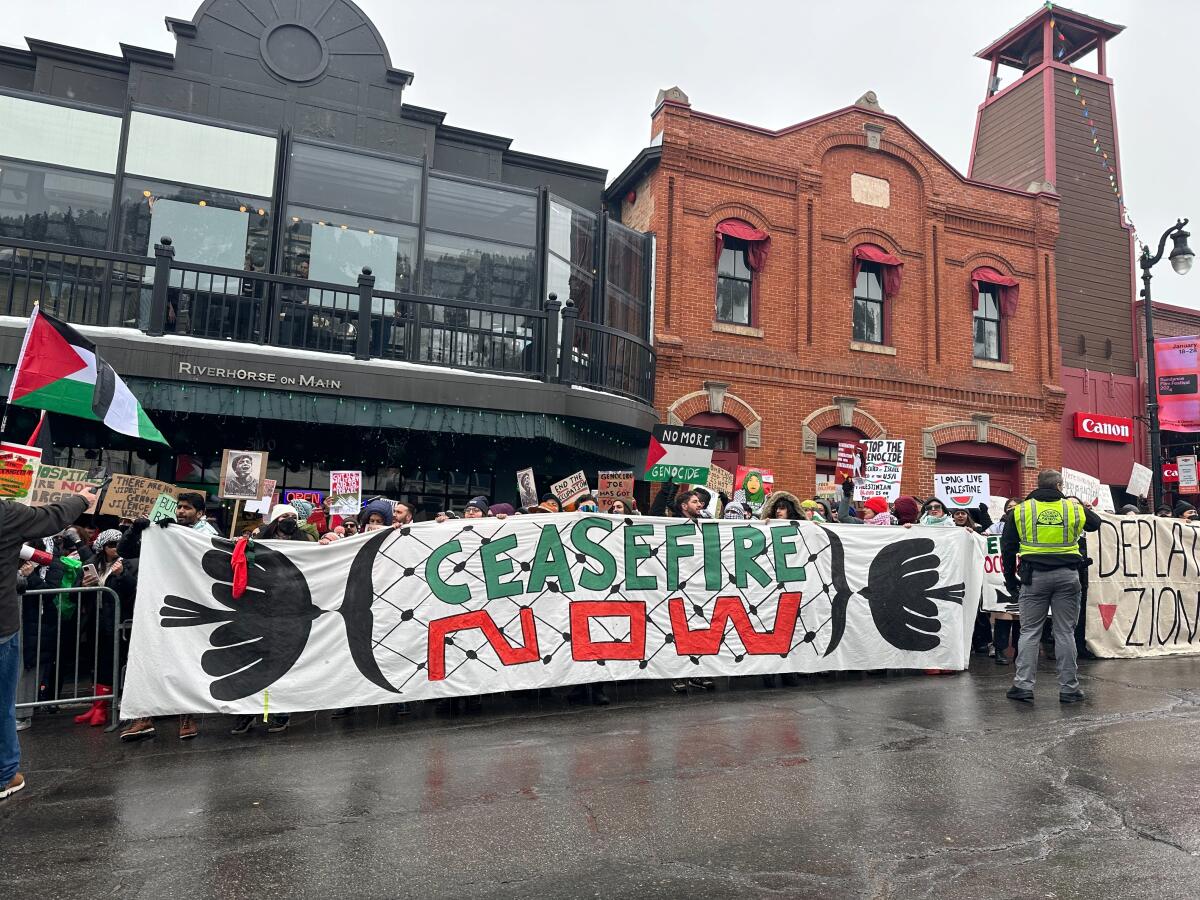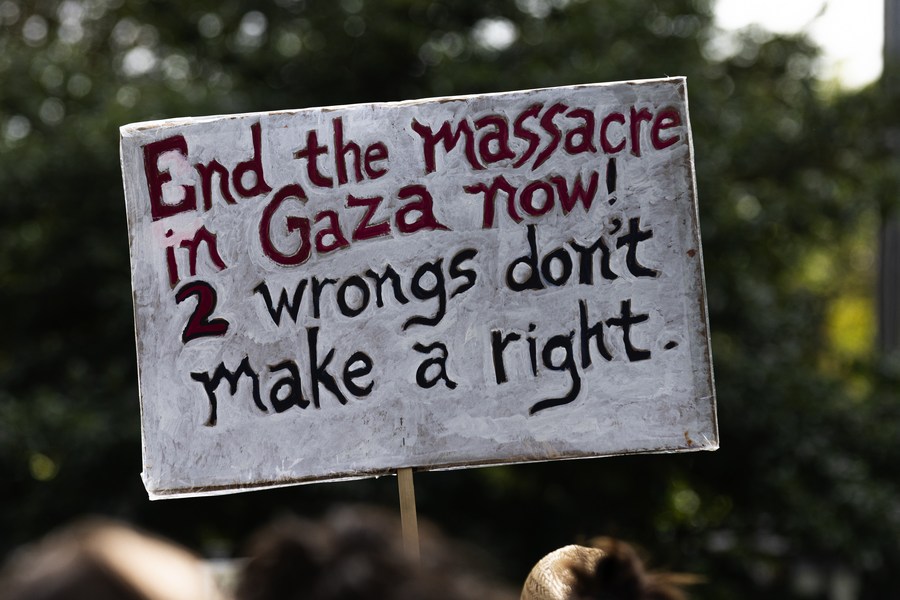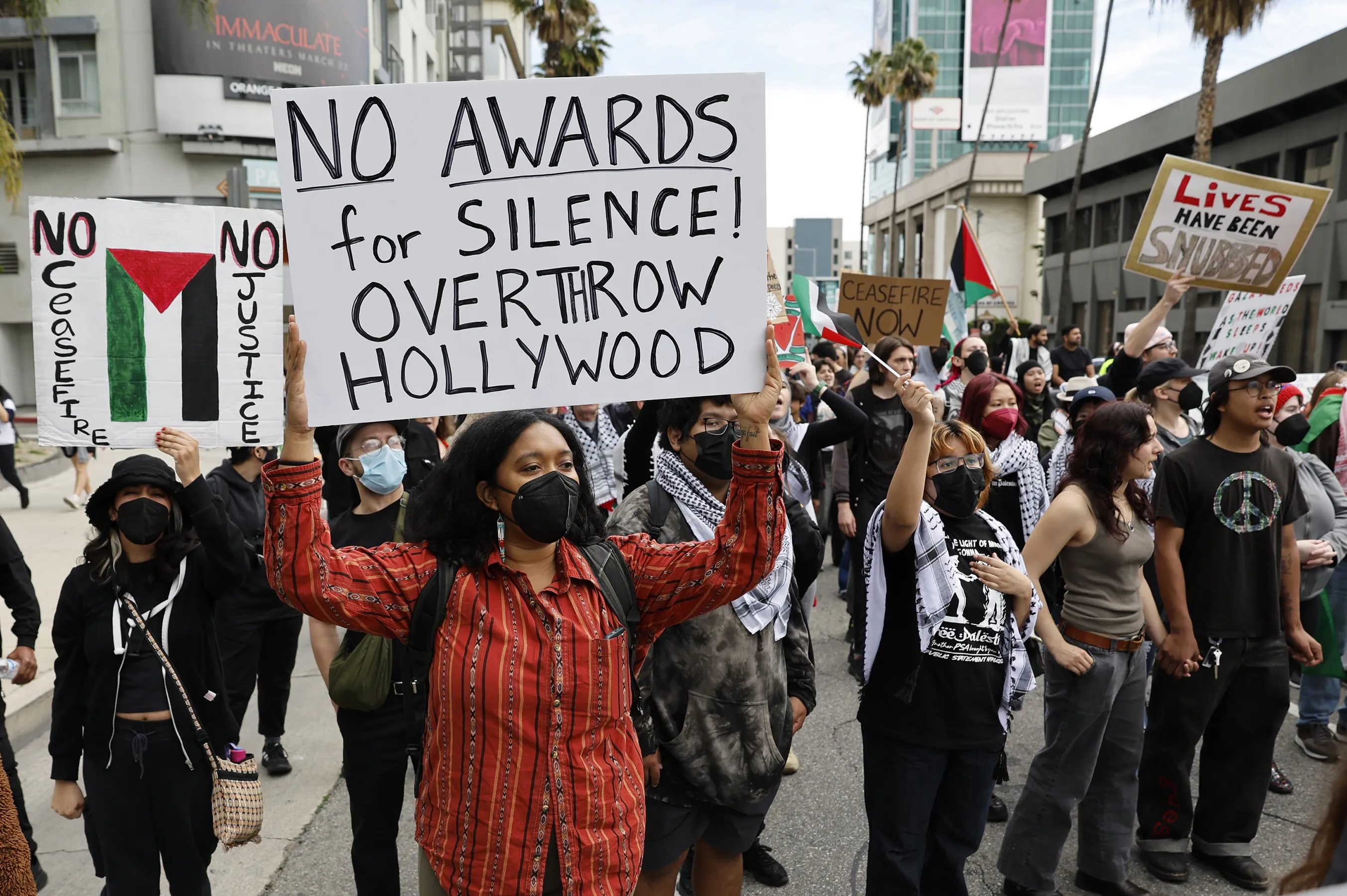How Does Hollywood Go After Artists Sympathetic to Gaza?

Hollywood began to see the Israeli Occupation not as a progressive entitiy but rather as a U.S.-endorsed suppressor of Palestinians.
On a brisk day by the White House, tourists wandered, Secret Service agents were vigilant, and protesters displayed a sign pleading: "Over 40,000 Palestinians perished, when will there be a ceasefire?"
In the midst of activists commencing a five-day fast is a familiar face to viewers of shows like Sex and the City and The Gilded Age.
A campaign to spotlight Palestinian writers and their history is underway. The entertainment sector has largely been cohesive on issues like Donald Trump's presidency, Black Lives Matter, and reproductive rights, but the Israeli aggression on Gaza.
Discussions are laden with words like antisemitism and genocide. Former allies are now embroiled in disputes over censorship, duplicity, and treachery. Prominent individuals who voice their opinions are met with hostility, exclusion, or sometimes, termination.
"Voicing opinions is leading to penalties," states Cynthia Nixon, clad in a dark coat and pale scarf, clutching a water bottle. "However, many actors and artists are uniting to counter this, asserting, 'This isn't acceptable.' We might not concur on everything, and perhaps some need to articulate more cautiously, but it shouldn't cost people their careers."

Exposing Reality
Historically, the Israeli Occupation has found robust backing in Hollywood. Its inception in 1948, post-Holocaust, was honored at the Hollywood Bowl with a packed audience heeding a message from its first prime minister, David Ben-Gurion.
A 1967 rally at the same locale showed support following the six-day war, with celebrities like Frank Sinatra, Peter Sellers, and Barbra Streisand.
Over time, however, some in the industry began to see the Israeli Occupation not as a progressive underdog but rather as a U.S.-endorsed suppressor of Palestinians, now governed by its most conservative administration ever.
The ongoing bombardment of Gaza, claiming nearly 40,000 lives as per local health authorities, has sparked fury and calls for peace.
David Clennon, an Emmy recipient and staunch advocate for Palestinian rights, comments via email: "Hollywood used to be unanimous in showing its admiration and loyalty to Israel. A new show business generation is beginning to challenge that dominant ideology. And of course the old guard will do everything in their power to intimidate them."
Clennon reveals: "I considered requesting anonymity for this interview, but I'm an old-timer, and I don't have as much to lose as the younger folks who feel empathy and solidarity with the people of Palestine.
"Other actors, writers, and industry employees have been fired, or threatened, for criticizing the ideology and practice of Zionism. But these same criticisms are made by Israelis themselves — intellectuals and political activists. It's ironic that there is more open debate about Zionism in Israel than is allowed in Hollywood."
Susan Sarandon, the Academy Award-winning actress and advocate, recently faced repercussions for her outspokenness.
After voicing her concerns at a pro-Palestinian gathering in New York, she was let go by United Talent Agency (UTA).
She had expressed empathy for the Jewish community's current fears, drawing parallels to the Muslim experience in America, often marred by violence.

Hollywood Inquisitions
Creative Arts Agency (CAA) experienced its own turmoil when Maha Dakhil, a key agent, stepped down from the board after posting comments on social media that accused the Israeli Occupation of genocide, for which she later expressed regret.
Screenwriter Aaron Sorkin decided to leave CAA, stating, "Maha is not antisemitic, merely mistaken."
Variety reported that CAA assistants threatened to resign over the agency's handling of Dakhil's situation, who remains an agent.
Tom Cruise, her most notable client, openly supported her, even visiting her at the CAA office on November 15, as per an informed source.
However, CAA did cut ties with assistant Jouman Barakat, who labeled all pro-"Israel" rally attendees as white supremacists, and writers Regina Jackson and Saira Rao, the latter having accused Zionists on social media of being genocidal.
Actor Melissa Barrera was dismissed from the movie Scream VII by Spyglass Media due to her social media posts deemed antisemitic.
She had accused "Israel" of genocide and the indiscriminate killing of Palestinians, including women and children, under the guise of targeting Hamas.
The punitive actions within the industry have raised concerns among free speech proponents like Donzaleigh Abernathy, an actor and civil rights figure Ralph Abernathy's daughter and Martin Luther King's goddaughter.
She sympathizes with the penalized actors and stresses the importance of preserving lives over imposing penalties, questioning whether proponents of war face similar repercussions.
Despite the industry's stance, numerous artists remain vocal. Bradley Cooper, Alfonso Cuaron, Selena Gomez, Janelle Monae, Lupita Nyong'o, Jenna Ortega, Joaquin Phoenix, Mark Ruffalo, and Mark Rylance are among the 260-plus signatories of a letter to President Joe Biden and Congress advocating for an immediate ceasefire in Gaza.

Antisemitism Tool
Cynthia Nixon, an actress and former New York gubernatorial candidate, joined activists outside the White House, arguing against the misuse of the term antisemitic to stifle dissent.
As a mother of Jewish children with Holocaust survivor grandparents, she emphasizes the personal significance of the issue to her family, particularly her eldest son, who was recently detained during protests.
Nixon contends that while antisemitism is a grave concern, it should not be exploited to silence criticism of the Israeli government.
The discourse has permeated various sectors, from corporate entities and academic institutions to public demonstrations, legislative chambers, and even the presidential administration.
A subset of progressive Jewish individuals expresses dismay at the perceived indifference from their usual allies on other issues.
These individuals point out the general omission of the severity of the October 7th attack by Hamas, which resulted in the death of 1,200 Israelis and internationals and the abduction of approximately 240 individuals.
Michael Seitzman, a screenwriter and producer, recently penned an article for Deadline, drawing attention to a circulating Hollywood letter that decries the loss of life in Gaza but fails to mention the abhorrent acts committed against Jewish people, including minors.
In conversation, Seitzman expressed his bewilderment not at the critique of "Israel" per se, but at the disregard for the events of October 7th. He questions the ethical implications of failing to condemn such atrocities and the silence surrounding them.
Seitzman, known for his work on North Country and Code Black, contends that industry professionals should have the autonomy to choose not to collaborate with individuals who propagate hate. He also remains unimpressed by Nixon's protest through fasting in the capital.
He wishes for a redirection of energy from those advocating for a truce towards the release of the young captives, noting the absence of any reference to the October incident in many public appeals and demonstrations, which he finds both disheartening and perplexing.










